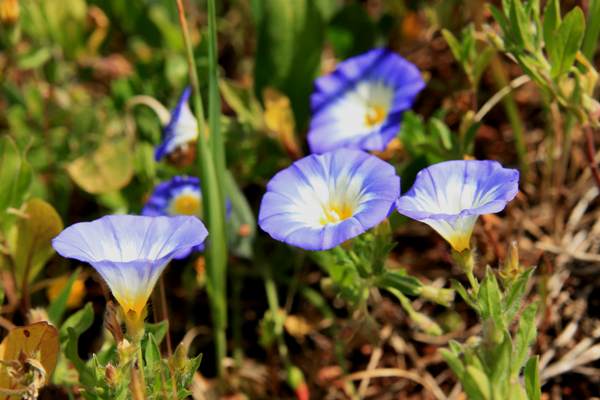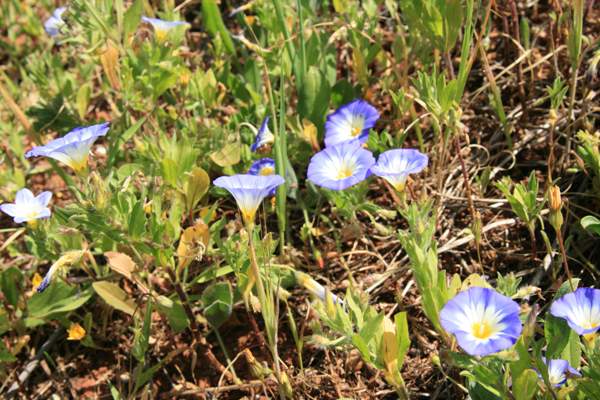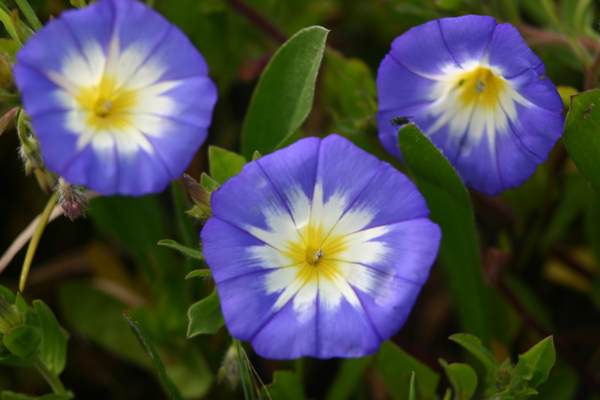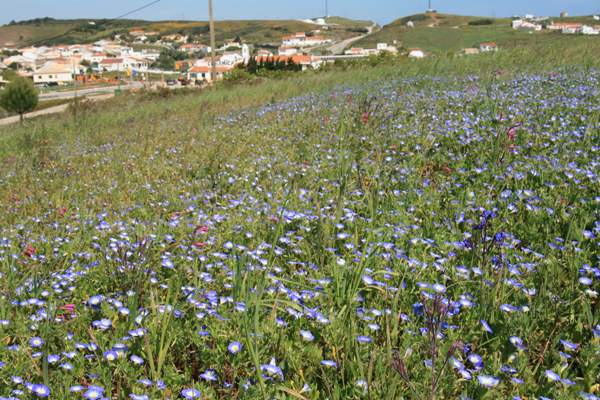Convolvulus tricolor - Dwarf Convolvulus or Annual Convolvulus
Phylum: Magnoliophyta - Class: Equisetopsida - Order: Solanales - Family: Convolvulaceae

This annual bindweed, which is sometimes referred to as Dwarf Morning-glory, is to found throughout the Mediterranean region, although it is less common as a wildflower in the extreme east of the region.

These gorgeous flowers are close relatives of common bindweed, the bane of many gardners' lives; however, it's possible that Dwarf Convolvulus isequally loathed by the Mediterranean farmers whose tilled land this flower quickly carpets.
Description
The blue, white and yellow trumpet-shaped flower, typical;y 3cm across, is so attractive that it is also cultivated for garden ornament. The flowers occur singly on stems rarely taller than 25cm.

Flowering Times
In its native Mediterranean range, Dwarf Morning-glory can be seen in flower from March right through to June, when for passers by it provides an unforgettable vista
Habitat
Convolvulus tricolor favours dry open habitats, and being an annual it readily colonises disturbed soil.

Etymology
The specific epithet tricolor means 'of three colours' and refers to the blue, white and yellow flowers.
The specimens shown on this page were photographed in the Algarve region of southern Portugal in April.
Please Help Us: If you have found this information interesting and useful, please consider helping to keep First Nature online by making a small donation towards the web hosting and internet costs.
Any donations over and above the essential running costs will help support the conservation work of Plantlife, the Rivers Trust and charitable botanic gardens - as do author royalties and publisher proceeds from books by Pat and Sue.

